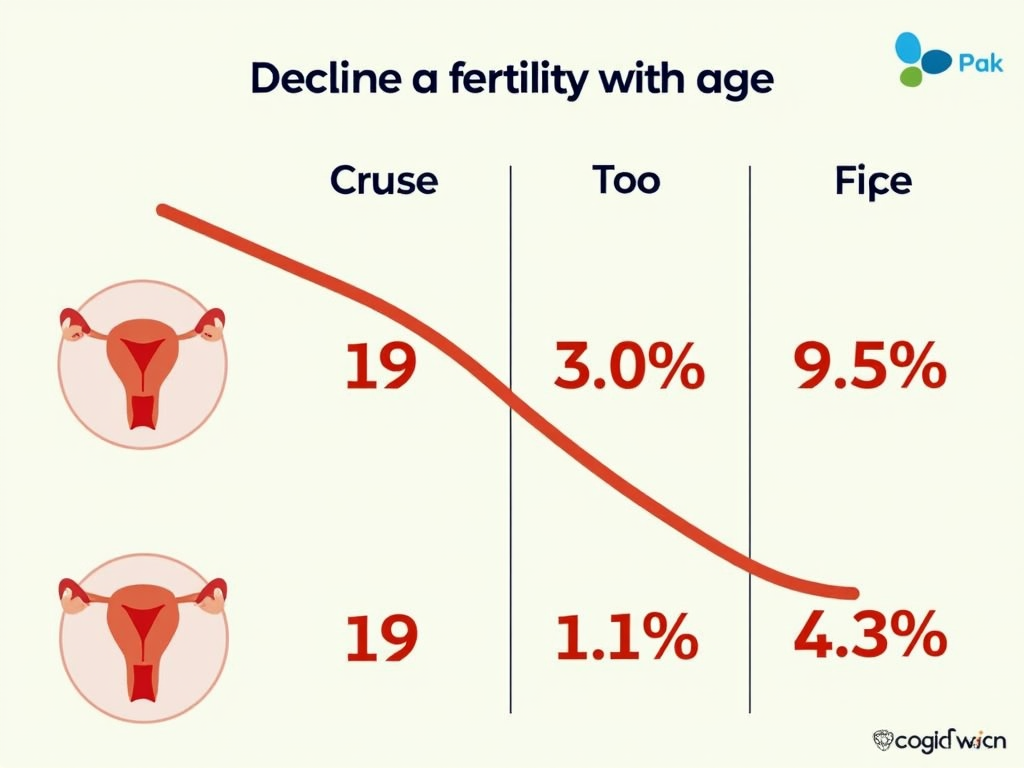Navigating Emotional Wellness During Infertility: Essential Tips and Resources
March 20, 2025, 8:01 a.m.
Infertility can be an emotionally challenging journey. This article offers practical tips and resources to help you maintain emotional wellness, cope with the ups and downs, and find support along the way.
Infertility is more than just a physical condition; it's an emotional rollercoaster that can leave you feeling overwhelmed, isolated, and heartbroken. The longing for a child, coupled with the uncertainty of treatment outcomes, can trigger a range of emotions, from grief and anxiety to frustration and despair.
I remember the day I received my infertility diagnosis. It felt like the ground had been pulled out from under me. The dreams I had of starting a family suddenly seemed out of reach, and I was left grappling with a profound sense of loss. It was a grief unlike any I had experienced before – a grief for a future that might never be.
But I wasn't alone in this journey. Millions of people around the world face the challenges of infertility, and each one has their own story of heartache and hope. It's important to acknowledge these emotions and give yourself permission to feel them. Suppressing your feelings can lead to even greater distress down the road.

Maintaining emotional wellness during infertility requires intentional effort and self-care. Here are some practical strategies that can help you navigate this challenging time:
-
Practice Mindfulness: Mindfulness techniques, such as meditation or deep breathing exercises, can help you stay grounded and reduce anxiety. Try setting aside a few minutes each day to focus on your breath and let go of racing thoughts.
-
Journal Your Feelings: Writing down your emotions can be a cathartic way to process your experiences. Consider keeping a journal where you can express your thoughts, fears, and hopes without judgment.
-
Seek Support: Don't hesitate to reach out to friends, family, or a therapist who can provide a listening ear and emotional support. Joining a support group for people experiencing infertility can also be incredibly validating and comforting.
-
Engage in Self-Care: Make time for activities that bring you joy and relaxation, whether it's reading a book, taking a walk in nature, or indulging in a hobby. Self-care is not selfish; it's essential for your well-being.
-
Set Boundaries: It's okay to say no to social events or conversations that may trigger negative emotions. Protect your mental health by setting boundaries and prioritizing your needs.

Fertility preservation and in vitro fertilization (IVF) are common treatment options for those facing infertility. While these technologies offer hope, they can also add to the emotional complexity of the journey.
Understanding the success rates of IVF and how they relate to age can help manage expectations and reduce anxiety. For example, women under 35 generally have higher success rates with IVF compared to those over 40. However, it's important to remember that every individual's situation is unique, and success rates are just one piece of the puzzle.
Fertility preservation, such as egg or sperm freezing, can provide a sense of control and hope for the future. Knowing that you have taken steps to preserve your fertility can alleviate some of the pressure and allow you to focus on your emotional well-being.
Table: IVF Success Rates by Age Group
| Age Group | Live Birth Rate per Cycle |
|---|---|
| Under 35 | 40-45% |
| 35-37 | 30-35% |
| 38-40 | 20-25% |
| Over 40 | 10-15% |
Note: These are approximate rates and can vary based on individual circumstances and clinic data.

One of the most powerful ways to maintain emotional wellness during infertility is to seek support from others who understand your journey. Whether it's through professional counseling, support groups, or online communities, connecting with others can provide a sense of belonging and reduce feelings of isolation.
Here are some resources that can offer valuable support and information:
- Resolve: The National Infertility Association - Offers support groups, educational resources, and advocacy for those experiencing infertility.
- The Broken Brown Egg - A blog and community that focuses on infertility in the Black community, providing a safe space for sharing experiences and finding support.
- FertilityIQ - An online platform that provides comprehensive information on fertility treatments, clinics, and patient reviews.
Remember, you don't have to navigate this journey alone. Reaching out for help is a sign of strength, not weakness.

Infertility comes with its own set of unique challenges, from dealing with well-meaning but insensitive comments to managing the financial and physical toll of treatments. Here are some strategies for coping with these difficulties:
-
Educate Your Loved Ones: Help your friends and family understand what you're going through by sharing articles or resources about infertility. This can reduce misunderstandings and foster empathy.
-
Practice Assertiveness: If someone makes an insensitive remark, it's okay to calmly express how their words affect you. For example, you might say, "I appreciate your concern, but that comment is hurtful. Let's talk about something else."
-
Manage Expectations: Infertility treatments can be unpredictable, and it's important to prepare for various outcomes. Focus on what you can control, such as your self-care routine and support system.
-
Take Breaks When Needed: It's okay to step away from treatments or social media if you need a mental health break. Listen to your body and mind, and give yourself permission to rest.

Despite the challenges, it's possible to maintain hope and resilience throughout your infertility journey. Here are some ways to stay positive and focused on the future:
-
Celebrate Small Victories: Whether it's a successful treatment cycle or simply getting through a tough day, acknowledge and celebrate your progress.
-
Visualize Your Goals: Spend time imagining your life with a child, and hold onto that vision as a source of motivation and hope.
-
Find Inspiration: Read success stories or listen to podcasts featuring people who have overcome infertility. Their journeys can remind you that there is light at the end of the tunnel.
-
Practice Gratitude: Even in the midst of hardship, there are things to be grateful for. Keep a gratitude journal to remind yourself of the positive aspects of your life.
Remember, your worth is not defined by your ability to have a child. You are resilient, strong, and capable of navigating this journey with grace and courage.

Emotional wellness during infertility is a journey that requires patience, self-compassion, and support. By implementing these tips and utilizing available resources, you can navigate the challenges with greater resilience and hope. Remember, you are not alone, and there is a community ready to support you every step of the way.